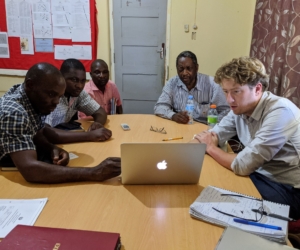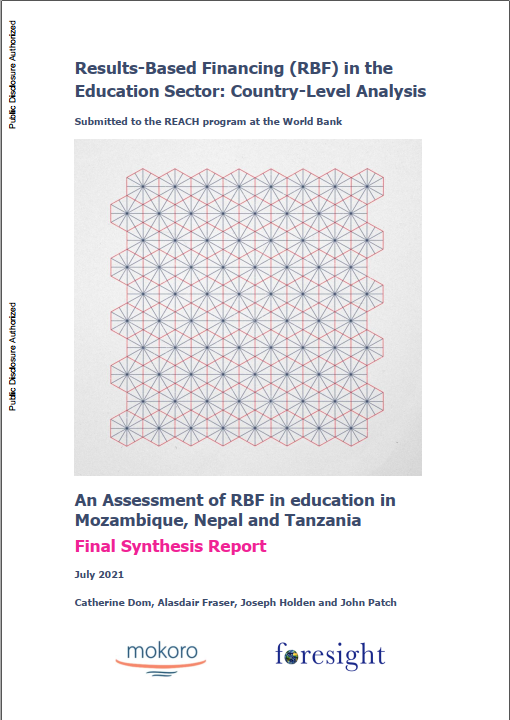Evaluating Results-Based Financing in the Education Sector
Country Level Analysis
2021
World Bank, Mozambique, Nepal and Tanzania
Mokoro conducted this assignment in partnership with Foresight Development Associates and the University of East Anglia. The assignment assessed the use of results-based financing (RBF) in education since 2013 in Tanzania, Mozambique and Nepal. The three countries were at different stages in the development of RBF in education, and a variety of models had been used. Through access to these diverse contexts and experiences, the assignment team addressed the question: “To what extent, in what ways and under which conditions has RBF contributed to strengthen education systems to deliver results?”
The research had two phases. In the first phase, the assignment team visited each location and mapped the RBF present in education, producing Preliminary Assessment Reports. Adapting the methodology for the second phase in response to the global Covid-19 pandemic, the team made use of in-country personnel and video conferencing to conduct further stakeholder interviews at national and local levels. Final Assessment Reports for each country were followed by a Synthesis Report, which compared the country experiences.
In the synthesis of the three studies, the team assessed the applicability of seven theories about the benefits of RBF, and addressed the risks associated with each approach. They prepared twelve recommendations for the successful implementation of RBF, covering a wide range of considerations such as clarity of design, risk management, indicator development, monitoring and verification, donor coordination, stakeholder engagement and equity. The report has been disseminated widely, including at a well-attended launch event: “What types of results are worth buying?”



